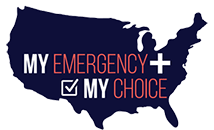4 Tips for Your Next ER Visit

Do you know where the emergency rooms are in your area? If you, or a companion, had an accident, would you know immediately where to take them? One in three Americans meet with some kind of emergency every year, so it can really help to have some preparation in place just in case you need it.
As summer progresses and we all enjoy more outdoor time, sports and activities, the chances of accidents happening increase. If the worst happens, you’ll be glad you gave it a little thought beforehand.
Below are some tips to help you get prepared in case of accidents or medical emergencies.
Be Prepared
While you don’t anticipate a visit to the emergency room (who ever does, after all?), it pays to have basic information close to hand, and to know what to bring to the ER, just in case.
In your wallet or purse, keep a short record of your medical history which should include the following items.
- All medication you’re taking
- Previous surgical procedures
- Your medical history (including childhood conditions)
- Name and address of your doctor
- Your own name and address
- Insurance information
- Next of kin and emergency contacts
Some emergency rooms will check your cell phone for emergency contacts. If you haven’t made a digital note of any in your Contact list, do so as soon as possible. Not only could it help the emergency room staff, it could also help you locate important numbers easily if you’re not thinking straight following an accident or other emergency.
Ask Questions
Never be scared to take an interest in the care you’re given, the tests the emergency room staff is recommending, or the medications they’re giving you.
The more you understand what’s happening, the more able you are to cooperate and recognize if anything isn’t right. In the case of medication, you can reassure yourself you’re not being given drugs you’re allergic too, and at the same time remind staff of any allergies. You don’t, for instance, want a nice big dose of penicillin if you react badly to it!
You may not always get hugely detailed answers to your questions if staff are really busy, but it never helps to build up some kind of rapport when possible. Staff are human too, and little humor and genuine interest goes a long way.
Follow Through and Follow Up
For some, a visit to the ER is just the first step. Depending on the reason for your visit, follow up care by your primary doctor may be necessary, and it’s important you follow through if this is the case. To make it easier for your doctor to assess what happened to you and which follow-on care you need, be sure to keep all the records you’re given:
- Nature of your illness or emergency
- Diagnosis
- Treatment given
- Medications prescribed or administered
- Scans or X-rays
- Discharge instructions
- Follow up advice
On discharge, make sure you understand all the instructions you’re given for when you get home. If you think you’ve forgotten anything, it’s okay to ring back to the emergency room to check or get clarification. It’s far better to double check, for instance, medication dosages, than to take too much or too little and end up back in emergency.
If you do need follow up care, make an appointment with your primary doctor as soon as you’re able.
Take Someone With You
There are a couple of good reasons why taking someone to the emergency room with you is a good idea:
- Company and Reassurance – Waiting can be stressful at any time, but when you’re sick and needing medical attention, it’s even harder and can be scary. Having a companion with you can help to keep you calm, and they can also help you to pass the time. Waiting times vary, but emergency rooms are becoming busier all the time and you’ll probably have to wait, not just for initial treatment, but for the results of any tests that might be done. Also, patients are seen depending on the level of emergency, so if someone arrives needing urgent care, they can be seen ahead of you making your wait a little longer.
- Translation and Interpretation — This is especially important when English isn’t the first language but, aside from possible language barriers, it’s also important to have someone along who can remember important details you may forget. Knowing about your condition and medical history can make all the difference, but often details can slip your mind when you’re in pain or feeling scared and anxious.
You hope you’ll never need the emergency room but, if you do, being prepared saves time and speeds up your treatment. If you haven’t already done so, spend a few minutes now and prepare your wallet medical card. It can smooth your progress through the emergency room, and could even save your life.




